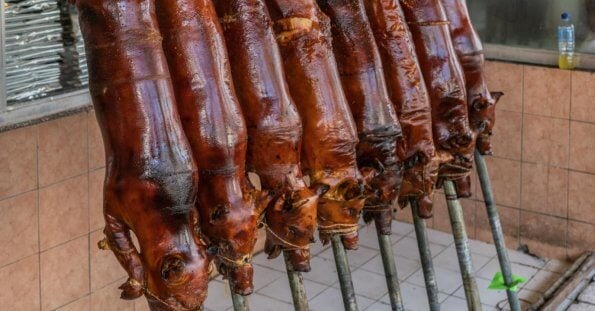It is more fun in the Philippines that is why the country is visited by people from all over the world. Despite the language barrier, Filipinos were able to express their hospitability through respecting one’s culture and learning to communicate effectively. With the use of the English language, Filipinos can easily be understood by many.
However, there are phrases or words Filipino used that most of us find it hard to translate in English. Worry no more because below is a list of Filipino words with no English translation that you’ll likely encounter.
1. Kilig
Kilig is the term most Filipino used when they are overwhelmed with romantic or any positive feelings. They are usually associated with phrases such as “Kilig to the bones” or “Kilig to the max”. They also used this word to describe their excitement or fascination towards a person or a certain thing. It can be closely described as “Butterfly in your stomach” in English.
2. Basta
Basta is the term used by Filipinos when they run out of words to describe something or when they are tired of expounding on their thoughts during an argument. It is also used to conceal a plan or hide a secret in the middle of the statement. It is also an unarguable word because this means your thoughts are final and you must do it regardless of what will happen. This word is commonly used by Filipinos regardless of the dialect and it is slightly similar with the term “whatever” in English.
3. Pikon
This term is mostly used to tease someone that is easily irritated. Pikon is sometimes associated with negative arguments because it is considered a trait by Filipinos in which your patience is too thin for certain things most especially like jokes. People who kill the fun during the party or make an argument out of a joke are usually labeled pikon.
4. Umay
Umay is a word used by Filipinos to describe the feeling of getting sick or tired of something. It can be considered as a negative attitude when done frequently because umay is sometimes associated with laziness. If you encounter repetitive problems or eat the same food all over again, you will eventually get that feeling. Umay is similar to the term ”Fed – up” in English.
5. Lihi
Lihi is a term associated with a condition of pregnancy food craving in which a pregnant woman usually desires a certain food to eat all throughout her pregnancy. Also, it is mostly used by older generation Filipinos to convince someone about their traditional or mythical beliefs. You can use this term if you want to encourage someone to do a certain act if they want success. One of the common lihi by Filipinos is when you gather 12 fruits before the start of the year to have a successful new year.
6. Pasalubong
Pasalubong is mostly used by Filipinos to describe a small gift, especially of food that is brought by travelling. This is because Filipinos love to bring something for their loved ones when they travel from distant places. It is used mostly by children or relatives waiting for their family to get home from travelling. Generally, it can be considered a ‘homecoming gift’ in English.
7. Tampo
Tampo is a word that describes a Filipino behavior in which they show less affection towards a family or a special someone. This is associated with a feeling of being emotionally down, loss of cheerfulness, hurt or sad. This usually occurs when you expect something from a person or a situation to happen and it turns the other way around. You can feel this when you are disappointed but not angry. This term is similar to the word ‘sulk/sulking’ in English.
8. Torpe
It is a term used to describe a Filipino who lacks self-confidence to express his/ her romantic affection towards someone. People who usually experience this are guys who like someone but don’t have the courage to express it because they think it is out of their league. The term torpe is similar to the term ‘sheepish’ in English which means low self-esteem.
9. Bitin
Bitin is a term to describe the feeling of not being satisfied. In some cases, it is used to express the need of wanting more but you can’t have more because it is not enough. Filipino used this to express when they like to eat something again but it is out of stock or no longer available. They would say “Nakakabitin naman gutom pa ako eh” which means “The food is not enough. I want more.
10. Nawiwindang
Nawiwindang is an expression used by Filipinos to describe the feeling of getting crazy or getting stressed because of a difficult situation. It is also used when a person is juggling two or more activities at the same time and she/ he cannot manage or take control of everything. Filipino would often say “Nawiwindang na talaga ako sa dami ng gawain” which means “I am going crazy because of the workloads”.
11. Bangungot
Bangungot is a term by Filipinos to describe a near death experience during sleep. It is associated with fictional stories in which monsters will stop you from moving and waking up during your sleep which causes heavy breathing. A lot of Filipinos also believe that it is the cause of too much physical activity in the morning. That is why during your sleep, your body is reacting like you are out of breath and you cannot move because you are tired.
12. Pagpag
Pag in English means shaking off dirt. Filipinos believe that pagpag is an act of removing jinx in your body. This is commonly associated with death or funeral. They believed that if you went to a funeral or an accident area, you have to do ‘pagpag’ wherein you have to visit another place prior to going home. This is to remove all the negative energy clinging in your body.
No video for Pagpag but if you want to see this live and in action, go to the mall or any local store.. if you lucky enough to be the 1st sale.. notice how the sales lady gets your money and makes it “pagpag” over all the other items on sale to share the luck of the sale to the other products.. This is usually seen if you are the first sale of the day!
























